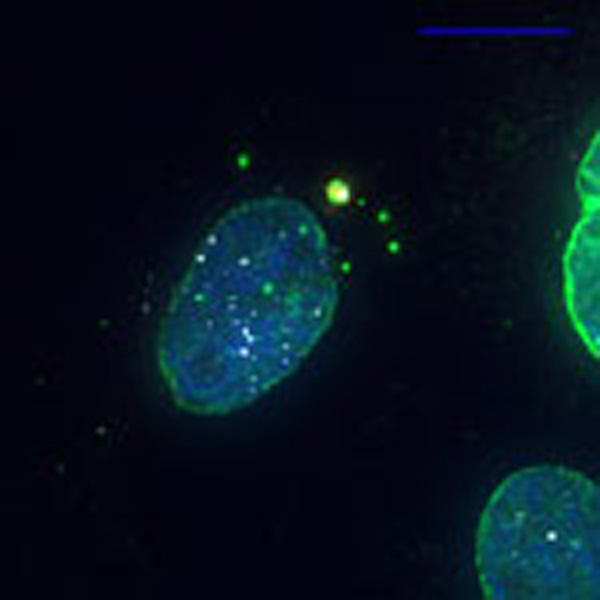A hygiene program for chromosomes
Cell biologists at ETH Zurich describe a new organelle present in mammalian cells that is made of rings of DNA. This “mini-organ” could potentially play a role in autoimmune diseases, and it could help researchers to understand how cell nuclei evolved.

In brief
- Researchers identified and characterized a new cellular compartment in vertebrate cells termed “exclusome” that might be a precursor of today’s eucaryotic nucleus.
- The study reveals that mammalian cells recognize, cluster, sort and keep extrachromosomal DNA - like transfected plasmid DNA and endogenous circular DNAs originating from telomeres of the chromosome - away from chromosomal DNA.
- That suggests that there is a cell autonomous genome defense system.